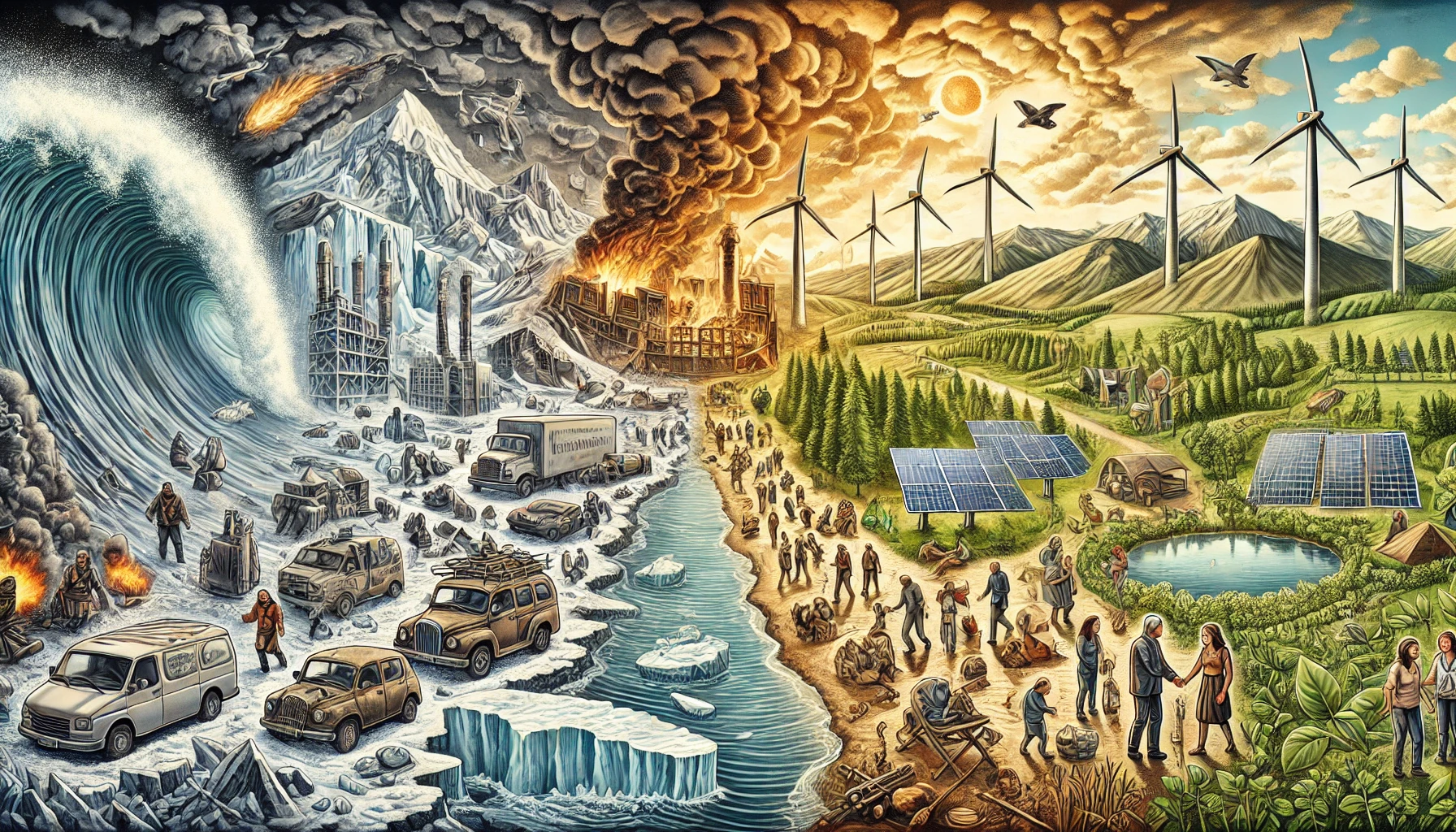Climate change has emerged as one of the most pressing issues of our time, presenting unprecedented challenges that impact ecosystems, economies, and communities worldwide. Rising global temperatures, extreme weather events, and sea-level rise are clear indicators of our changing climate. However, with challenges come opportunities for resilience and transformation. This article explores the causes and effects of climate change and provides actionable strategies for adaptation and mitigation.
Causes of Climate Change
Climate change is largely driven by human activities that increase greenhouse gas emissions. Fossil fuel combustion, deforestation, and industrial processes contribute significantly to the atmospheric concentration of greenhouse gases like carbon dioxide (CO₂) and methane (CH₄). According to the Intergovernmental Panel on Climate Change (IPCC), these gases trap heat in the Earth’s atmosphere, leading to a phenomenon known as the greenhouse effect, which is the main driver of global warming.
The Effects of a Changing Climate
The consequences of climate change are far-reaching and affect various aspects of human life and natural systems.
- Extreme Weather Events: As global temperatures rise, weather patterns become more unpredictable. We are seeing more frequent and intense storms, floods, droughts, and heatwaves. According to the World Meteorological Organization (WMO), these extreme weather events have devastating impacts on agriculture, infrastructure, and public health.
- Biodiversity Loss: Changing temperatures and weather patterns threaten ecosystems and biodiversity. The United Nations Environment Programme (UNEP) reports that many species are unable to adapt quickly enough to the changing climate, leading to habitat loss and extinction.
- Economic Impact: Climate-related disasters cause massive economic damage each year. The World Bank projects that without significant action, climate change could push millions into poverty by 2030 due to loss of livelihood, increased food prices, and health impacts.
Response Strategies for a Sustainable Future
Addressing climate change requires a twofold approach: mitigation to reduce greenhouse gas emissions and adaptation to cope with its inevitable effects.
- Transition to Renewable Energy: Shifting from fossil fuels to renewable energy sources, such as wind, solar, and hydropower, can reduce greenhouse gas emissions. Countries worldwide are setting ambitious targets for clean energy, with the goal of achieving carbon neutrality.
- Sustainable Agriculture and Land Use: Adopting sustainable farming practices, reforestation, and soil conservation techniques can reduce emissions and enhance the capacity of land to store carbon. The Food and Agriculture Organization (FAO) emphasizes that sustainable agriculture is essential for climate adaptation, particularly in developing countries.
- Climate-Resilient Infrastructure: Building infrastructure that can withstand extreme weather is crucial for protecting communities from climate impacts. Coastal defenses, water management systems, and heat-resilient structures are key components of adaptation efforts, as highlighted by the United Nations Framework Convention on Climate Change (UNFCCC).
- Public Awareness and Policy Initiatives: Educating the public about climate change and implementing strong climate policies at national and international levels are crucial for driving collective action. The Paris Agreement exemplifies a global commitment to reduce emissions and limit global warming.
Moving Forward Together
The journey to mitigate and adapt to climate change requires global cooperation and innovative solutions. By investing in renewable energy, supporting sustainable agriculture, and building resilient communities, we can reduce our climate footprint and protect our planet for future generations. Facing the future with determination, humanity has the power to make meaningful change and secure a sustainable world.
References:
- IPCC. (2021). Climate Change 2021: The Physical Science Basis.
- World Meteorological Organization. (2023). State of the Global Climate.
- United Nations Environment Programme. (2022). Global Biodiversity Outlook.
- World Bank. (2022). Climate Change Action Plan.
- Food and Agriculture Organization. (2022). The State of Food and Agriculture.


